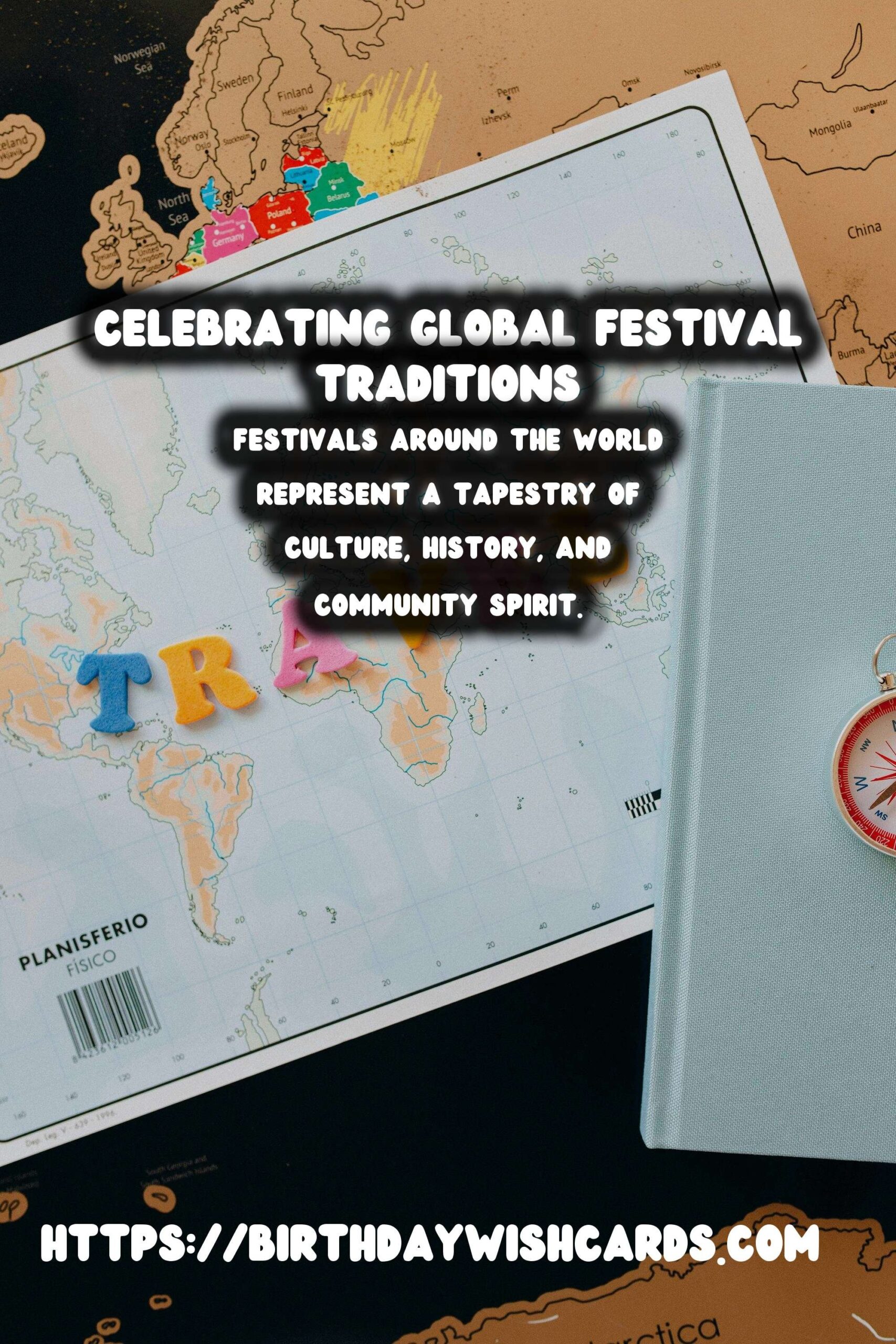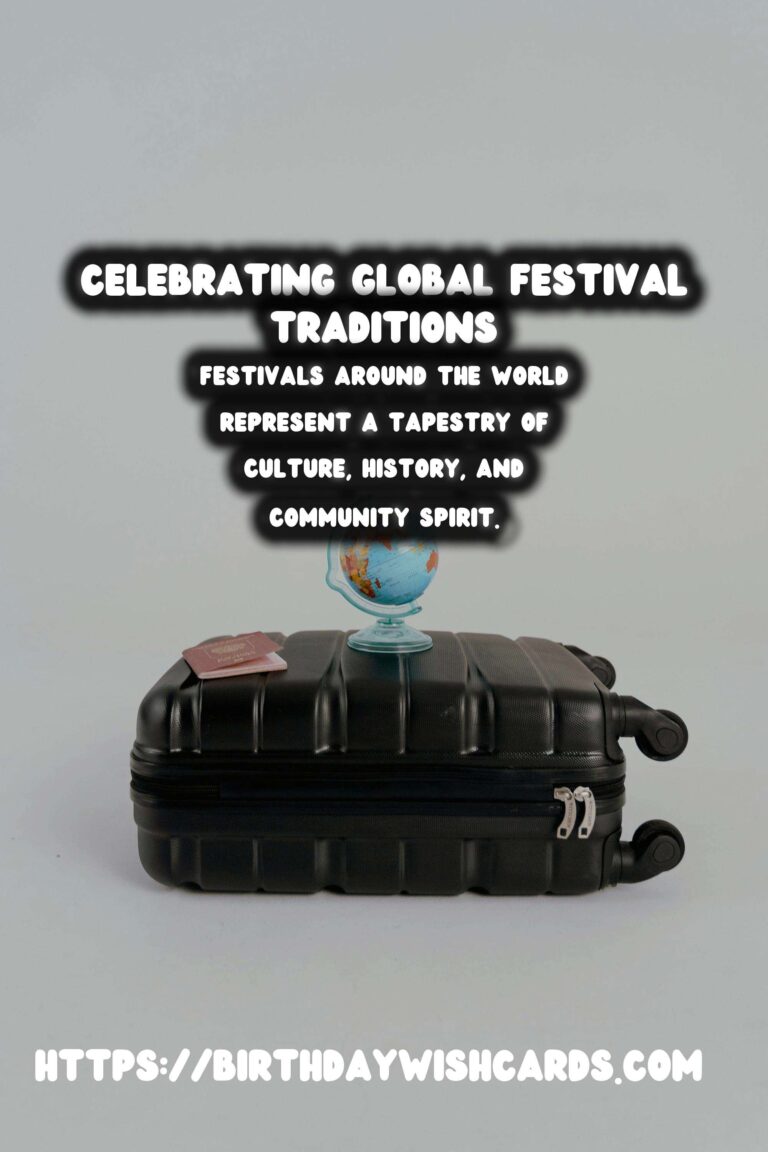
Festivals around the world represent a tapestry of culture, history, and community spirit. Each tradition tells a story, passed down through generations, and celebrated with unique customs and practices. This article will explore charming ways to prepare for these world festival traditions, bringing families and friends together in joyous anticipation.
Understanding the Significance of World Festivals
Before diving into preparation, it’s essential to understand the significance of world festivals. These events often mark religious observances, seasonal changes, historical commemorations, or cultural heritage.
For example, Diwali, known as the Festival of Lights, symbolizes the victory of light over darkness. Similarly, the Chinese New Year marks the beginning of a new year on the lunar calendar, filled with festivities, family gatherings, and feasts.
1. Researching Festival Traditions
The first step in preparing for any festival is to research its traditions. Each festival has unique customs, foods, and rituals.
For instance, understanding the customs of the Carnival in Brazil can enhance your experience. Participating in parades, wearing vibrant costumes, and learning samba dance movements can add depth to the celebration.
2. Gathering Family and Friends
Many festivals are centered around community and family. Reaching out to neighbors, friends, and family allows everyone to participate in the celebration. Hosting pre-festival gatherings can also help in preparations.
Consider organizing a potluck where everyone brings a dish that represents the festival’s culinary tradition. This fosters a sense of community and excitement leading up to the event.
3. Exploring Traditional Recipes
One of the most delightful parts of festival preparation is food. Exploring and preparing traditional recipes can be a fun way to get everyone involved.
For instance, during Ramadan, preparing classic dishes such as dates, samosas, and various curries is significant. Sharing these meals with friends and neighbors can help spread joy and strengthen bonds.
4. Crafting Decorations
Decorations play a vital role in setting the festival atmosphere. Whether it’s creating paper lanterns for Diwali or hanging colorful banners for a birthday celebration, crafting decorations can be a creative and enjoyable activity.
Engage family members of all ages in making traditional ornaments. This not only beautifies the space but also creates lasting memories.
5. Attire and Costumes
Dressing up in traditional attire enhances the festival experience. Research what people wear during the festival and see if it’s possible to acquire or create similar clothing.
For example, during Holi, wearing white is a common practice as it allows the bright colors of the festival to stand out. Alternatively, during Halloween, costumes can range from traditional to whimsical.
6. Involving Children
Children can become ambassadors of tradition by involving them in the preparations. Teach them the stories and significance behind each festival.
Allowing them to participate in decorating, cooking, and choosing music encourages their connection to their cultural heritage.
7. Planning Activities and Entertainment
Every festival has its share of activities – from games, music, and dance to storytelling and performances. Planning these activities ahead of time ensures everyone has a delightful experience.
For example, during Thanksgiving, organizing games like charades or Thanksgiving trivia can entertain guests after the feast.
8. Embracing Local Community Events
Many towns and cities host community events during major festivals. Embracing these activities fosters community spirit and allows for a larger celebration experience.
Checking local calendars for parades, fairs, or cultural showcases can add an exciting layer to your festival preparations.
9. Sharing the Experience on Social Media
In the digital age, sharing festival experiences online has become prevalent. Creating events, sharing photos, and tagging friends and family amplifies the joy of the celebration.
Consider compiling highlights into a video or photo album to share with loved ones who couldn’t attend, ensuring that they feel part of the occasion.
10. Reflection and Gratitude
As the festival comes to a close, take a moment to reflect on the experience. Festivals often involve themes of gratitude and reflection, so consider setting time aside to appreciate the festivities, whether through journaling or sharing stories over a meal.
Conclusion
Preparing for world festival traditions is not just about the events themselves; it’s about the connections we forge with our families, communities, and cultures. By researching, gathering with loved ones, exploring traditional recipes, and embracing the spirit of the celebration, you cultivate unforgettable memories yearly.
So, dive into the preparations and make every festival a charming, joyous occasion!
Festivals around the world represent a tapestry of culture, history, and community spirit. Understanding the significance of world festivals is essential for preparation.

